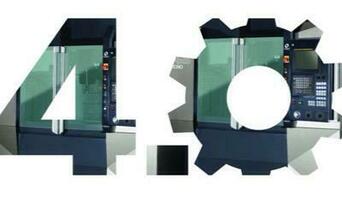
Siemens Financial Services (SFS) has released a new research paper which focuses on digital transformation in the manufacturing industry stating that the key point is ceasing to be one of ‘whether' to invest in transformation, but rather ‘when'.
Research from SFS has found that the potential financial value of digitalization is estimated to be between 6.3 percent and 9.8 percent of total annual revenue by 2025. In most marketplaces, early movers (first 50% of players) to invest in new technologies or business models, are those that will be able to make the most of this competitive advantage. For the "laggard" half of the market, investment in the new technologies or models is still required. The research found that 70-80% of large companies have implemented a significant pilot project for Industry 4.0 production solutions, compared to 40-50% of small and medium enterprises (SMEs).
Respondents to the research from Siemens Financial services estimate that the "tipping point" - defined as when 50% of the global manufacturing community will have substantially converted to Industry 4.0 production platforms - will be reached within the next 5-7 years for larger manufacturers and 9-11 years for SME manufacturers.
Challenges to implement digital transformation tend to pivot around the issue of finance. These include understanding the commercial benefits of Industry 4.0, knowing that there will be a reliable return-on-investment, and paying for Industry 4.0 technology at a rate lower than or matching the expected commercial gains, making the investment sustainable. The financing techniques that enable sustainable digital transformation are becoming known as "Finance 4.0". These techniques cover the full range of requirements, from the acquisition of a single digitalized piece of equipment, to financing a whole new factory, to even acquiring a competitor.
"Debate has moved on from whether to invest in digital transformation to when and how. Most leading manufacturers are looking for sustainable ways to invest in digital transformation so that they gain the competitive benefits of being in that early mover cohort. But there are several challenges, many of which center around the practicalities of investment in the technology and machinery required. Forward-thinking manufacturers are using Finance 4.0 solutions to accelerate their digital transformation to maximize the market advantage" says Sunil Kapoor, MD & CEO, Siemens Financial Services Pvt. Ltd. in India.
"Implementation of Industry 4.0 technologies will help create value and novel business models, and will also create a level playing field for SMEs. The benefit from Industry 4.0 for our customers from all industries and verticals is that data will be transferred into valuable knowledge to improve competitiveness, into new insights to raise productivity, and build the basis for new business models. This requires close collaboration between various stakeholders to help enterprises unlock the potential of Digitalization," said Bhaskar Mandal, Head - Digital Industries, Siemens India.



























